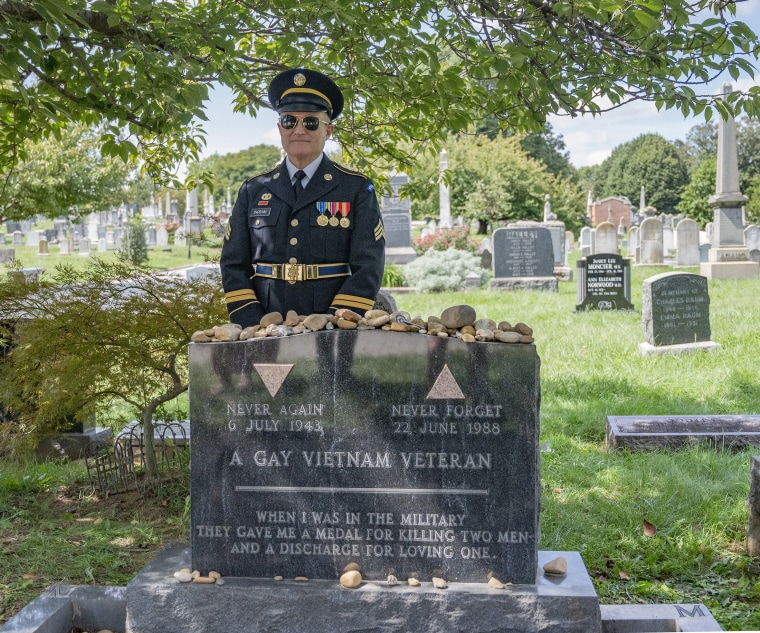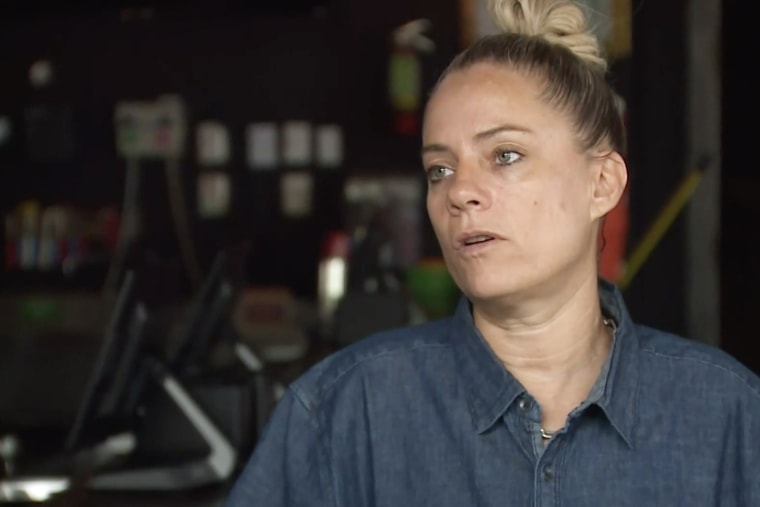Best Buy offered to screen donations from its employee resource groups going to LGBTQ causes following pressure from a conservative think tank that holds shares in the company, according to a Securities and Exchange Commission filing made public this week.
The SEC filing contains a monthslong email exchange between the National Center for Public Policy Research, which describes itself as a “nonpartisan, free-market conservative think tank,” and Best Buy. The dialogue, which hasn’t been previously reported, shows how the center said it would make “a splash” unless the consumer electronics giant moved in favor of its demands.
In some of the last correspondence in the filing, Best Buy noted that it allows its employee resource groups “some discretion to directly support organizations of their choosing” but added that “any such contributions would be screened to ensure they do not advocate or support the causes or agendas you have identified as concerning.” One of the causes the NCPPR cited was transgender care for minors, which the group falsely described as an attempt to “mutilate the reproductive organs of children.”
When asked for a request for comment regarding the filing, Carly Charlson, a spokesperson for Best Buy, stated in an email: “At Best Buy, we strongly believe in an inclusive work environment with a culture of belonging where everyone feels valued and has the opportunity to thrive. This commitment is evident through our longstanding and continuing support of organizations like HRC, which has recognized us as one of the best places to work for the LGBTQIA+ community for the past 18 years.”
She then sent a followup email adding, “Nothing has changed in the ways we give to LGBTQIA+ organizations.”
In HRC, Charlson was referring to the Human Rights Campaign, the country’s largest LGBTQ-rights group.
“The news of this SEC filing is very concerning, and we are working in partnership with Best Buy to understand more,” Eric Bloem, HRC’s vice president of programs and corporate advocacy, said in a statement Friday afternoon. “Any company that uses their Corporate Equality Index distinction as cover while working with fringe groups and bad actors does not reflect true LGBTQ+ allyship in the corporate space.”
The communication in the SEC filing began on Dec. 11, when the NCPPR sent Best Buy a shareholder proposal asking the retailer to produce by June — and distribute at Best Buy’s annual shareholder meeting that month — a report for investors analyzing how its partnerships with LGBTQ nonprofits are benefitting the company’s business.
“Best Buy has partnerships with and contributes to organizations and activists that promote the practice of gender transition surgeries on minors and evangelize gender theory to minors. Why are Best Buy shareholders funding the proliferation of an ideology seeking to mutilate the reproductive organs of children before they finish puberty?” the proposal, signed by Ethan Peck, an associate at the NCPPR’s Free Enterprise Institute, states. “This contentious and vast disagreement between radical gender theory activists and the general public has nothing to do with Best Buy selling electronics.”
In an email dated Jan. 17, Peck told Best Buy’s attorneys that his organization “will withdraw its proposal if Best Buy were to end its partnerships with and contributions to” eight different LGBTQ nonprofits and initiatives, which he refers to as “predatory butchers” in his email. These groups include The Trevor Project, an LGBTQ youth suicide prevention and crisis intervention organization; SAGE, which advocates on behalf of LGBTQ elders; and GLAAD, an LGBTQ media advocacy group.
Peck did, however, leave the Human Rights Campaign off this list, stating in his email that “we understand that it’s unrealistic for Best Buy to leave HRC in the near future because of their political clout.”
“We hope you take this off-ramp for the sake of shareholders,” Peck wrote in the Jan. 17 email. “Were Best Buy to agree to such a compromise with us, we will not make a splash about it.”
In a Feb. 5 email, Marina Rizzo, a Best Buy attorney, told Peck that the company had reviewed his organization’s concerns and informed him that the company hadn’t donated in several years to two of the LGBTQ causes mentioned in the Jan. 17 email — the Trevor Project and Our Gay History in 50 States — and has never donated to the other six. She then says the company would screen certain donations the NCPPR may find concerning.
“As discussed during our call, we do allow our individual employee organizations, including our Military ERG, Conservative employee interest group, and our PRIDE group, among many other groups, some discretion to directly support organizations of their choosing,” Rizzo wrote. “That said, any such contributions would be screened to ensure they do not advocate or support the causes or agendas you have identified as concerning. We hope this addresses the concerns.”(In a letter included in the SEC filing, Best Buy notes that its employee resource groups “are provided with their own funding and have the capability to identify sponsorships to receive that funding, subject to internal guidelines and Company oversight.”)
Later that day, Peck thanked Rizzo in an email “for looking into this” and added, “we’re definitely delighted to hear all that.” He then raised several follow-up questions, including why a page on the Best Buy website still indicates the company supports the Trevor Project and a book titled “Our Gay History in 50 States.”
“We’re going to need some kind of proof that that funding has ended,” Peck wrote.
The link to the Best Buy LGBTQ page, which Peck included in his email, was no longer functioning as of Friday, though a version of it can still be viewed through the Internet Archive. A page on Best Buy’s website about its support of “Our Gay History in 50 States”was also no longer available as of Friday but still viewable through the Internet Archive.
In an email on Feb. 9, Rizzo informed Peck that Best Buy would submit a letter to the SEC that afternoon asking that the regulator not take any action against the company for omitting NCPPR’s proposal from shareholder materials. She also told him that the letter is a “standard part of the proposal process, and we intend to continue our dialogue.” She ended the email by writing, “We remain ready to reach an understanding in conjunction with the withdrawal agreement you initially outlined.”
No additional email correspondence is included in the SEC filing after Feb. 9, and it’s unclear whether an agreement between Best Buy and NCPPR was ever reached. On March 22, NCPPR withdrew its Dec. 11 shareholder proposal. Then, on Tuesday of this week, Best Buy pulled its Feb. 9 “no action” request from the SEC, and the agency sent a letter on Wednesday confirming the matter was moot. This, in turn, ensures NCPPR’s shareholder proposal regarding LGBTQ donations will not be presented at Best Buy’s annual shareholder meeting in June.
In response to NBC News’ request for comment, Peck declined to share any specifics regarding his communication with Best Buy, stating, “We don’t discuss confidential discussions.” He did, however, confirm that his organization has sent similar proposals to other public companies, though he did not name them.
When asked why he chose the eight LGBTQ causes mentioned in the Best Buy SEC filing, he wrote, “We used those groups as examples of groups that have adopted radical and divisive positions on LGBTQ issues, but we recognize that many more such groups exist.”
The exchange between Best Buy and the NCPPR comes as many large companies face renewed pressure from conservatives to curb their public support for the LGBTQ community.
Major consumer brands, including Bud Light and Target, have faced heated criticism from conservative activists, prompting a rollback of LGBTQ-focused marketing campaigns and products as well as calls for boycotts. In Bud Light’s case, sales declined and shares of its parent company, Anheuser-Busch Inbev, tumbled in the months following the beer brand’s partnership with transgender influencerDylan Mulvaney on April 1 of last year, though the stock has since rebounded.
In an email on Friday, GLAAD, one of the LGBTQ nonprofits mentioned in the SEC filing, expressed its displeasure with Best Buy.
“Executives at Best Buy ought to be ashamed of how they turned their backs on their LGBTQ and ally employees and consumers,” GLAAD President and CEO Sarah Kate Ellis said. “They know what they did was wrong, or they would not have tried to hide this cowardly, toxic corporate takeover inside an ordinary SEC filing.”


